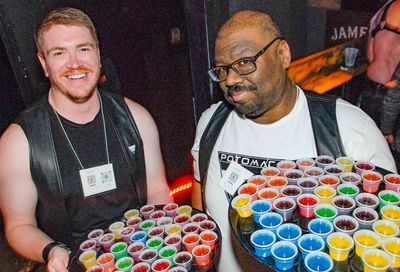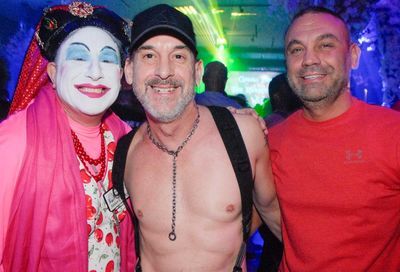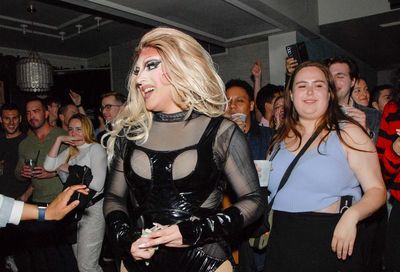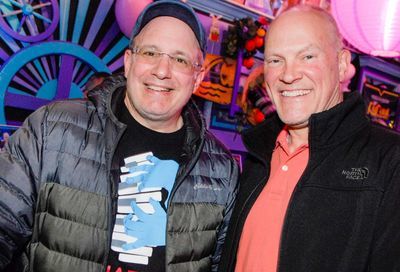Congress members file SCOTUS brief in support of gay couple denied wedding cake
Brief argues that allowing an exemption for anti-gay baker would open floodgates to other forms of discrimination

On Wednesday, U.S. Sen. Tammy Baldwin (D-Wis.) and U.S. Rep. Sean Patrick Maloney (D-N.Y.) announced that 35 senators and 175 U.S. House members have joined them in filing an amicus brief in the Masterpiece Cakeshop case slated to be heard by the Supreme Court on Dec. 5.
In the brief, the members of Congress argue that laws prohibiting discrimination in places of public accommodations serve an important purpose, and that eliminating such discrimination is a compelling government interest. They argue that bakers like Jack Phillips, the owner of Masterpiece Cakeshop, in Lakewood, Colo., should not be allowed to use their religious beliefs to justify flouting nondiscrimination laws, as Phillips did when he refused to bake a cake for the wedding ceremony of Charlie Craig and Dave Mullins.
“Public accommodation laws mandate how businesses open to the general public must treat individuals with certain protected characteristics. Indeed, no matter how much or how little a particular business engages in ‘expressive’ conduct, nondiscrimination laws…govern any kind of commercial activity without regard to the level of expression involved,” the brief reads.
The brief also argues that allowing exemptions to nondiscrimination laws would set a precedent that could undermine protections for people who are not LGBTQ same-sex couples seeking a wedding cake. Almost any business, for any reason, would be able to claim a religious objection to limiting who they serve under the guise of “religious freedom” or “freedom of expression.”
“To attempt to articulate another standard that allows public accommodations to close themselves off to parts of the general public because the business claims ‘expressive’ components is not only unworkable, but such a standard would also ignore what nondiscrimination laws seek to do in the first place — eradicate discrimination, not compel or curb expression in any way,” the brief continues.
Phillips’ lawyers with the Alliance Defending Freedom have maintained that the Colorado Anti-Discrimination Act of which their client ran afoul is infringing upon his First Amendment rights. Furthermore, they argue, baking and designing cakes is a form of artistic expression, and forcing Phillips to serve same-sex couples is compelling speech by forcing him to implicitly endorse behavior that he believes to be sinful.
The Department of Justice has previously filed a brief taking the side of Phillips and endorsing that interpretation. The DOJ has also asked the court if it can intervene and argue on Phillips’ behalf when the Supreme Court hears oral arguments in the case.
The congressional members’ brief was announced just days after a host of other amicus briefs were filed in support of Craig and Mullins’ initial lawsuit against Masterpiece, arguing that the government has an interest in passing and enforcing nondiscrimination laws. Those briefs argue that while Phillips has a right to believe whatever he wants, and a right to espouse those beliefs, he does not have the right to practice those beliefs if doing so infringes on the rights of others who do not believe similarly.
“We wouldn’t let a hotel owner refuse a room to a person because of their race or allow a restaurant to deny service to a couple based on their religion — and we can’t let that same kind of discrimination apply to Americans based on their sexual orientation or gender identity,” said Maloney, a co-chair of the Congressional LGBT Equality Caucus, whose members made up a majority of those signing onto the brief.
“I support religious freedom and the freedom of full equality for every American. [But] Our religious beliefs don’t entitle any of us to discriminate against others and I don’t believe that any American should face discrimination based on race, gender, or sexual orientation — whether it’s at a bakery, a hotel, or a doctor’s office,” Baldwin said in a statement. “If an individual has the ability to pay for a service and is not in violation of the law, they should not be turned away.”
Support Metro Weekly’s Journalism
These are challenging times for news organizations. And yet it’s crucial we stay active and provide vital resources and information to both our local readers and the world. So won’t you please take a moment and consider supporting Metro Weekly with a membership? For as little as $5 a month, you can help ensure Metro Weekly magazine and MetroWeekly.com remain free, viable resources as we provide the best, most diverse, culturally-resonant LGBTQ coverage in both the D.C. region and around the world. Memberships come with exclusive perks and discounts, your own personal digital delivery of each week’s magazine (and an archive), access to our Member's Lounge when it launches this fall, and exclusive members-only items like Metro Weekly Membership Mugs and Tote Bags! Check out all our membership levels here and please join us today!






















